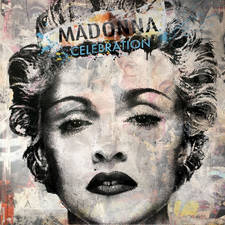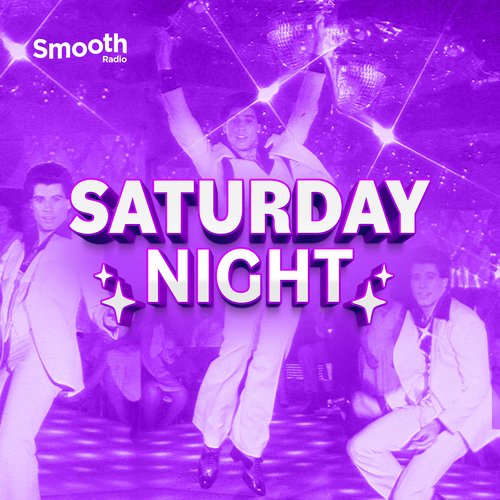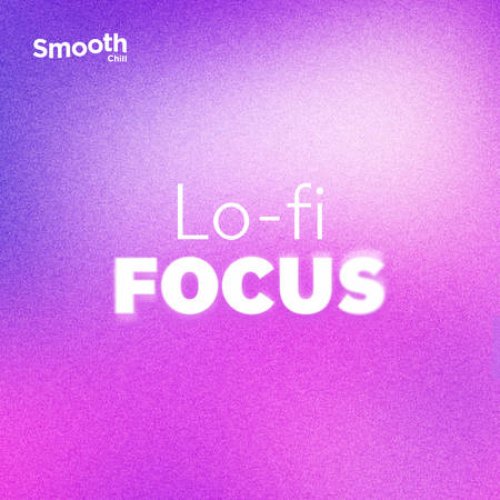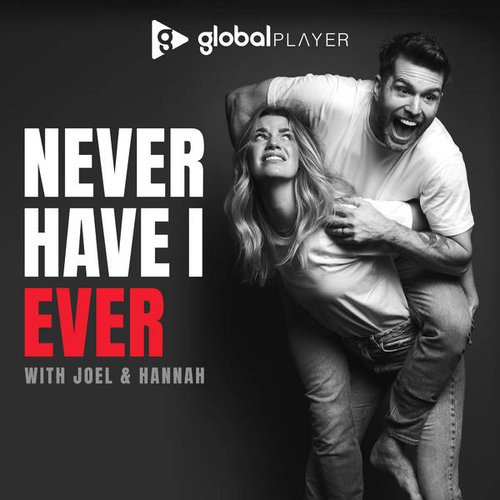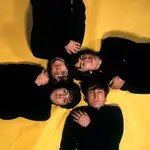How a last-minute concert in 1988 transformed Tracy Chapman into an overnight superstar
7 February 2024, 16:19
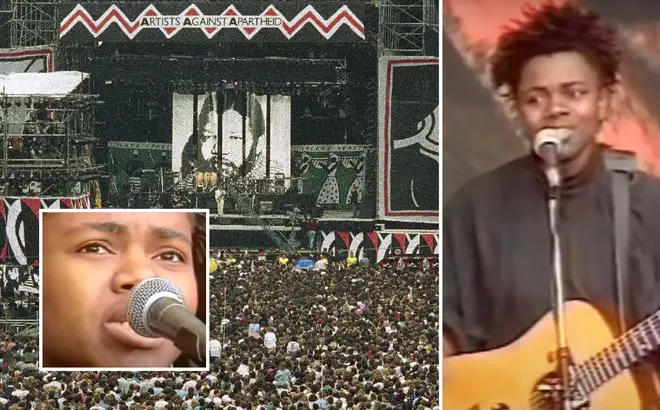
Listen to this article
She's one of pop music's most revered singer-songwriters.
When Tracy Chapman made an incredibly rare performance for this year's Grammy Awards, it reminded the music world of what a talent she is.
Only making a handful of public appearances since her last tour in 2009, everyone knew that were witnessing something special.
Chapman joined Luke Combs on stage for a duet of her classic 'Fast Car', after the latter revitalised her 1988 hit with his own cover version.
She was humbled by the wave of appreciation that came her way afterwards, becoming the first black songwriter to win Song of the Year at the 2023 Country Music Association Awards in Nashville, after Combs' cover won the big awards.
- Tracy Chapman makes triumphant comeback with live 'Fast Car' performance with Luke Combs at Grammys
- Luke Combs reveals sweet reason why he covered Tracy Chapman's 'Fast Car' on new album
- Gabrielle interview: Singer reveals story behind her stage name and how Tracy Chapman changed her life
- The Story of... 'Fast Car' by Tracy Chapman
After 'Fast Car' entered the US Hot Country charts, Tracy told Billboard: "I never expected to find myself on the country charts, but I’m honoured to be there."
"I'm happy for Luke and his success and grateful that new fans have found and embraced 'Fast Car'," she added. Though, it wasn't the first time that music lovers embraced 'Fast Car'.
At the beginning of her career in 1988, the budding singer-songwriter stepped in to play an unexpected last-minute set in place of Stevie Wonder, who could no longer perform on the night.
It was a moment of chance that would transform Tracy Chapman into an overnight global superstar.
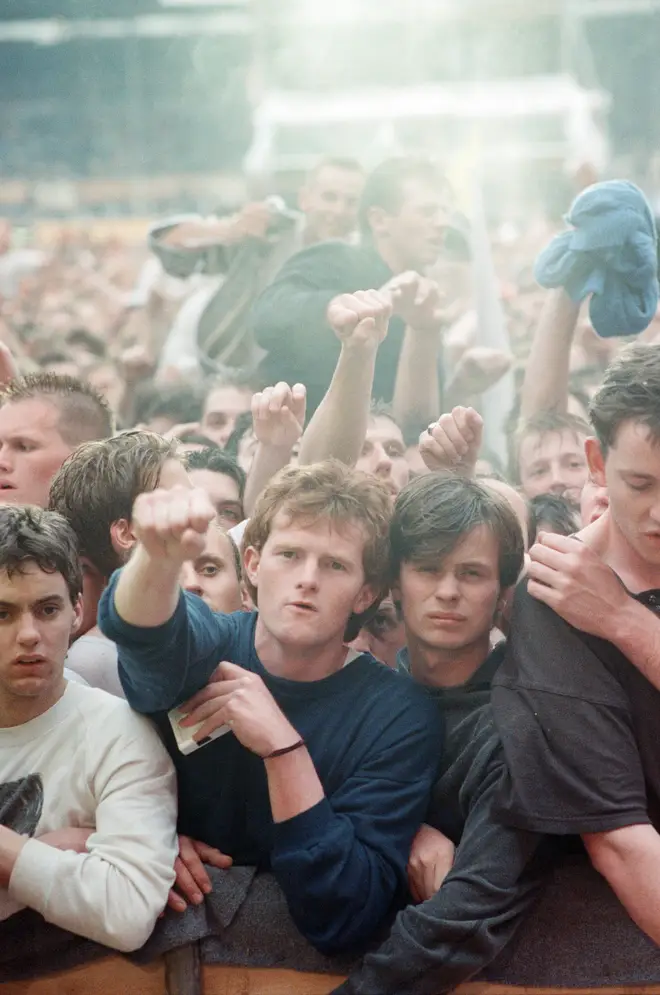
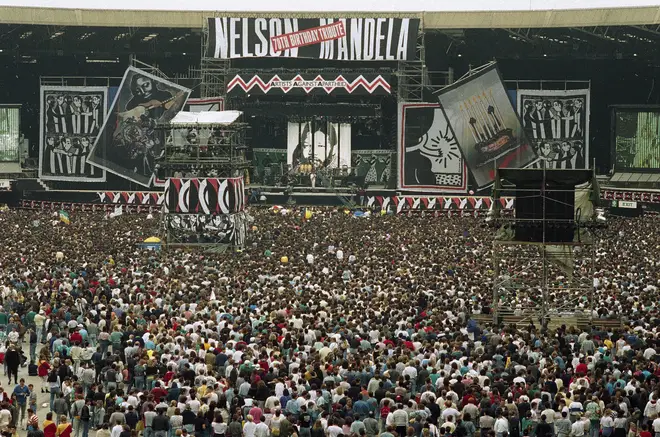
On 11th June 1988, a concert was held for Nelson Mandela's 70th birthday who was still imprisoned at the time for his anti-apartheid beliefs and activism.
A host of music icons were invited to perform at Wembley Stadium in London, including the likes of Sting, George Michael, Eurythmics, the Bee Gees, Wet Wet Wet, Whitney Houston, Peter Gabriel, Simple Minds, UB40, and Dire Straits all taking the stage.
Stevie Wonder was scheduled to perform too, despite not being officially announced, so the 'Superstition' superstar arrived in London earlier that morning.
Heading straight to Wembley Stadium after his plane landed, his band were already rehearsing for his set which was due to take place after UB40's.
But disaster struck, with Stevie refusing to come on stage, leaving the organisers in panic.

Tracy Chapman - Behind The Wall (Nelson Mandela 70th Tribute Concert, 1988)

Tracy Chapman - Fast Car [Wembley 1988]
Once the UK reggae icons brought their performance to a close, Wonder realised a crucial piece of his equipment was missing as he walked up the ramp to take the stage.
The hard disc for his Synclavier synthesiser was missing, and clearly affected by the fear of his performance not being up to scratch, ran back down the ramp in tears with his band following suit.
So, Stevie's mooted set was in tatters, and the organisers scratching their heads about what to do. That was until Tracy Chapman agreed to perform, again.
She'd already performed a set earlier that day, but agreed to fill the gap left by Stevie, and it blew everyone away.

Tracy Chapman - Talkin' About A Revolution (Official Music Video)
Performing the now-iconic songs from her self-titled debut album released two months earlier, Tracy emotionally delivered songs like 'Fast Car' and 'Talkin' 'Bout A Revolution' to a mesmerised Wembley Stadium audience.
Not only were the crowd inside the venue gobsmacked, but playing two sets on the day offered her far more exposure, with an estimated global audience of 600 million watching the concert through their televisions.
Before the concert took place, Chapman had sold roughly 250,000 album. In the two weeks following her performances, she had sold over two million.
Stevie Wonder did in fact perform later on in the evening, after agreeing to forgo his equipment and just shout the key changes to his band through the microphone.
By then however, Tracy Chapman was on her way to becoming a global phenomenon, and the rest is history.
